In our busy and often chaotic lives, finding moments of deep relaxation
and inner peace can seem elusive. At Dharma College, we understand the profound
benefits that come from taking time to relax and meditate. Our courses and
programs are designed to help you cultivate these practices, leading to
improved well-being, reduced stress, and a greater sense of inner calm.
Take this course: Balance, Health Care and Healing Power of Ease
The Importance of Relaxation and Meditation
Relaxation and meditation are more than just ways to unwind—they are essential practices for maintaining mental, emotional, and physical health. By taking time to deeply relax and meditate, you can reduce stress, improve focus, and enhance your overall quality of life. These practices allow you to connect with your inner self and find a sense of peace amidst the demands of everyday life.
Techniques for Deep Relaxation
Deep relaxation involves consciously releasing tension from your body and
mind. Here are some effective techniques to help you achieve a state of deep
relaxation:
1. Progressive Muscle Relaxation
Progressive muscle relaxation involves tensing and then slowly releasing
each muscle group in your body. This technique helps to reduce physical tension
and promote a state of calm. Start from your toes and work your way up to your
head, focusing on each muscle group as you go.
2. Deep Breathing
Deep breathing exercises can help activate the body's relaxation
response. Try inhaling slowly through your nose, allowing your abdomen to
expand, and then exhaling slowly through your mouth. Repeat this process
several times, focusing on the sensation of your breath.
3. Guided Imagery
Guided imagery involves visualizing calming and peaceful scenes, such as
a beach or a forest. This technique can help to distract your mind from
stressors and induce a state of relaxation. You can use pre-recorded guided
imagery sessions or create your own mental images.
The Power of Meditation
1. Mindfulness Meditation
Mindfulness meditation involves paying attention to the present moment without judgment. Focus on your breath, bodily sensations, or the sounds around you. When your mind wanders, gently bring your attention back to the present moment.
2. Loving-Kindness Meditation
Loving-kindness meditation involves cultivating feelings of compassion and love towards yourself and others. Begin by silently repeating phrases such as "May I be happy, may I be healthy," and then extend these wishes to others in your life.
3. Body Scan Meditation Body scan meditation involves mentally scanning your body for areas of tension or discomfort. Start from the top of your head and work your way down to your toes, bringing awareness to each part of your body and releasing any tension you find.
Join Us at Dharma College
Taking time to deeply relax and meditate is a gift you can give yourself
every day. At Dharma College, we are committed to supporting you on your
journey to inner peace and well-being. Our courses and community provide the
perfect environment to cultivate these essential practices.
Discover the transformative power of deep relaxation and meditation with
us. Visit our website to learn more about our courses and enroll today. Your
journey to a more relaxed and mindful life begins here.
References
- Benson, Herbert. The Relaxation Response. HarperTorch, 1975.
- Brach, Tara. Radical Acceptance: Embracing Your Life With the Heart of a Buddha. Bantam, 2003.
- Chodron, Pema. When Things Fall Apart: Heart Advice for Difficult Times. Shambhala, 1997.
- Davidson, Richard J., and Sharon Begley. The Emotional Life of Your Brain: How Its Unique Patterns Affect the Way You Think, Feel, and Live – and How You Can Change Them. Hudson Street Press, 2012.
- Hanh, Thich Nhat. The Miracle of Mindfulness: An Introduction to the Practice of Meditation. Beacon Press, 1975.
- Kabat-Zinn, Jon. Full Catastrophe Living: Using the Wisdom of Your Body and Mind to Face Stress, Pain, and Illness. Delta, 1990.
- Kornfield, Jack. A Path with Heart: A Guide Through the Perils and Promises of Spiritual Life. Bantam Books, 1993.
- Salzberg, Sharon. Lovingkindness: The Revolutionary Art of Happiness. Shambhala, 1995.
- Siegel, Daniel J. The Mindful Brain: Reflection and Attunement in the Cultivation of Well-Being. W.W. Norton & Company, 2007.
- Tolle, Eckhart. The Power of Now: A Guide to Spiritual Enlightenment. New World Library, 1997.

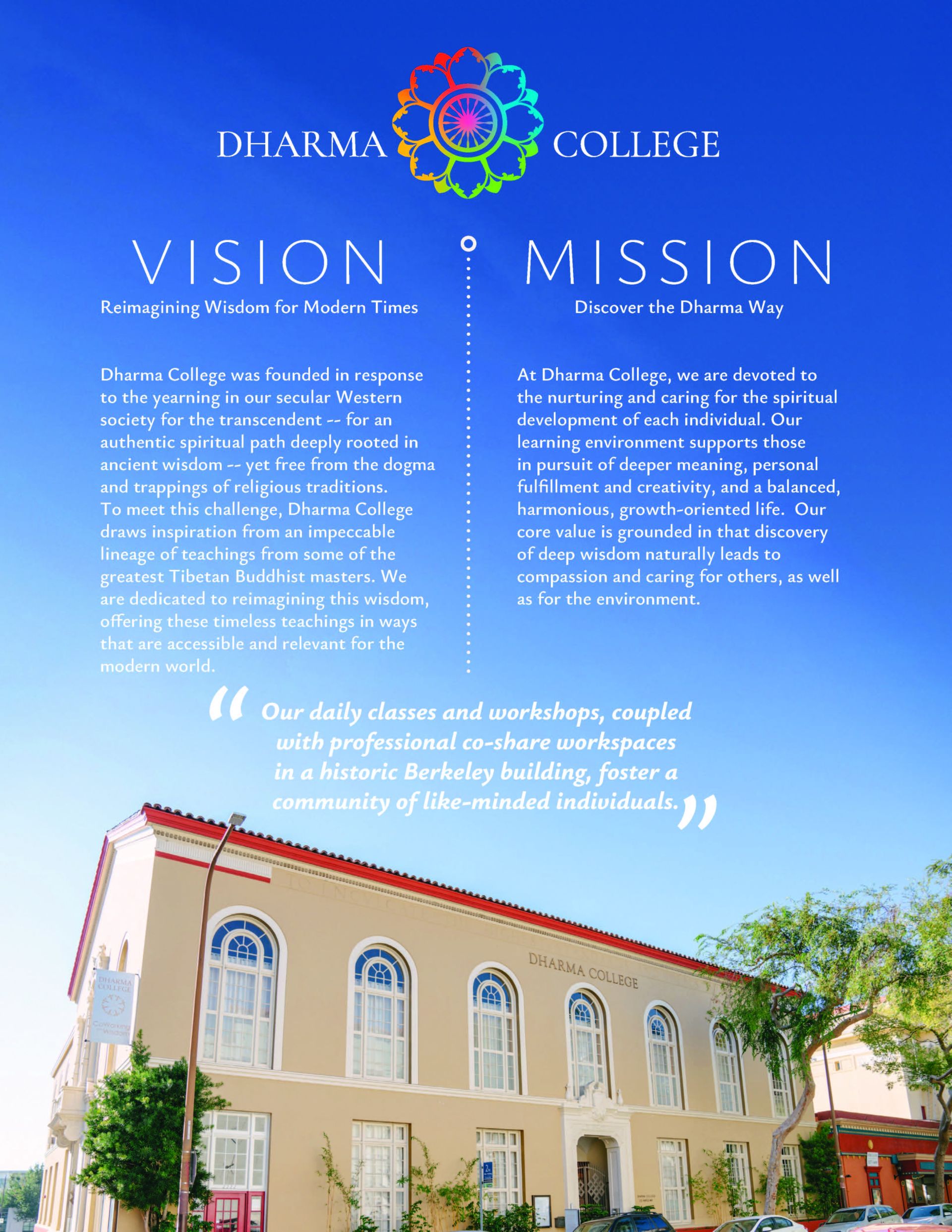
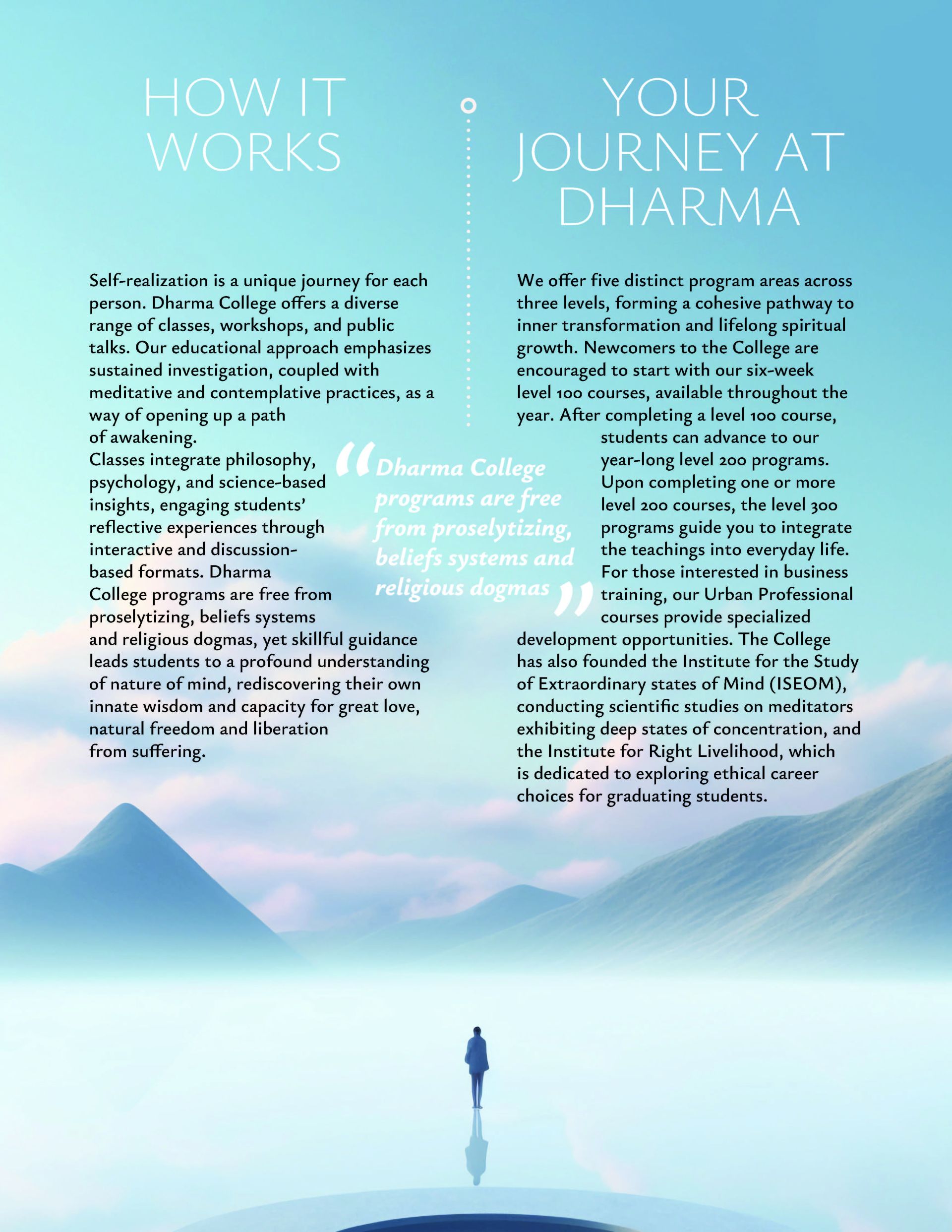
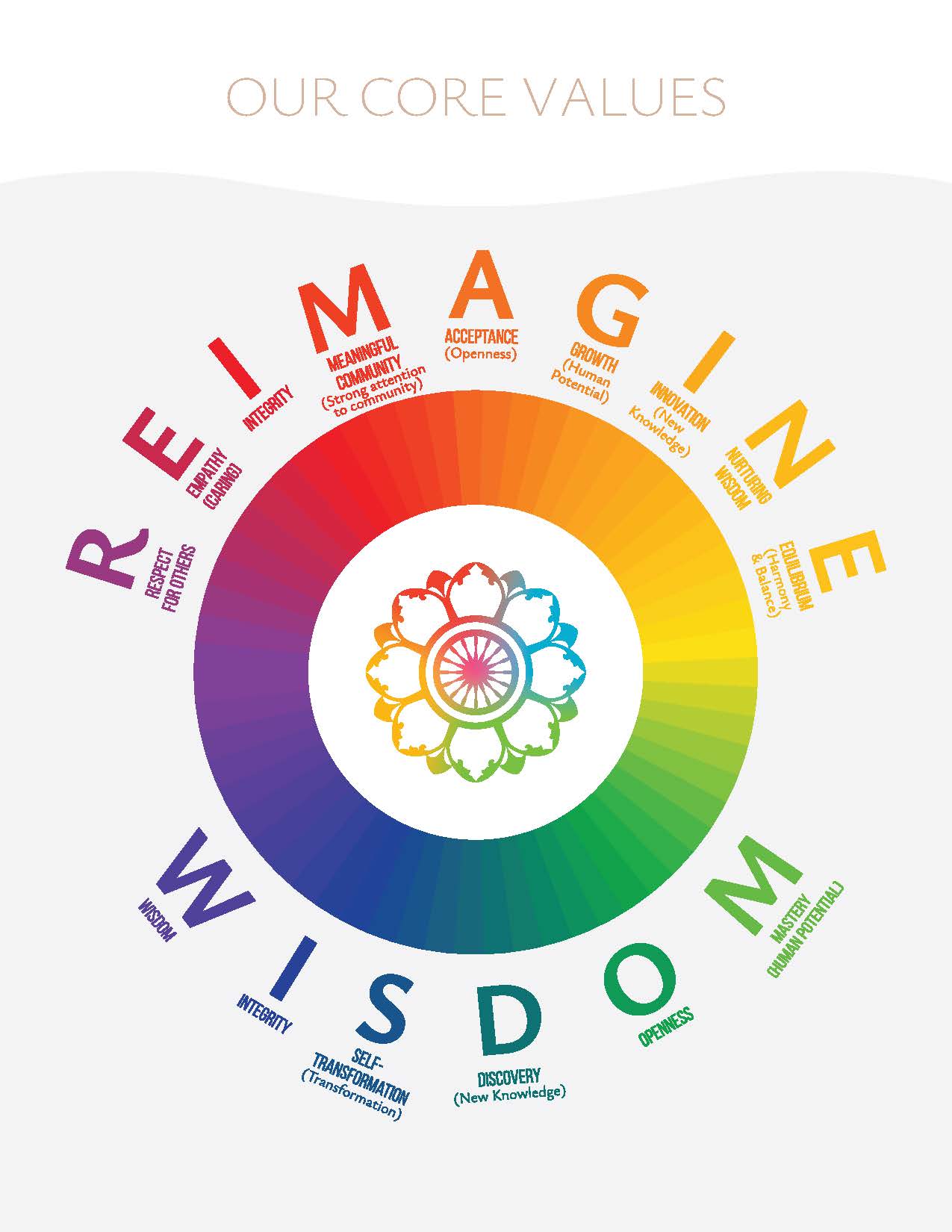
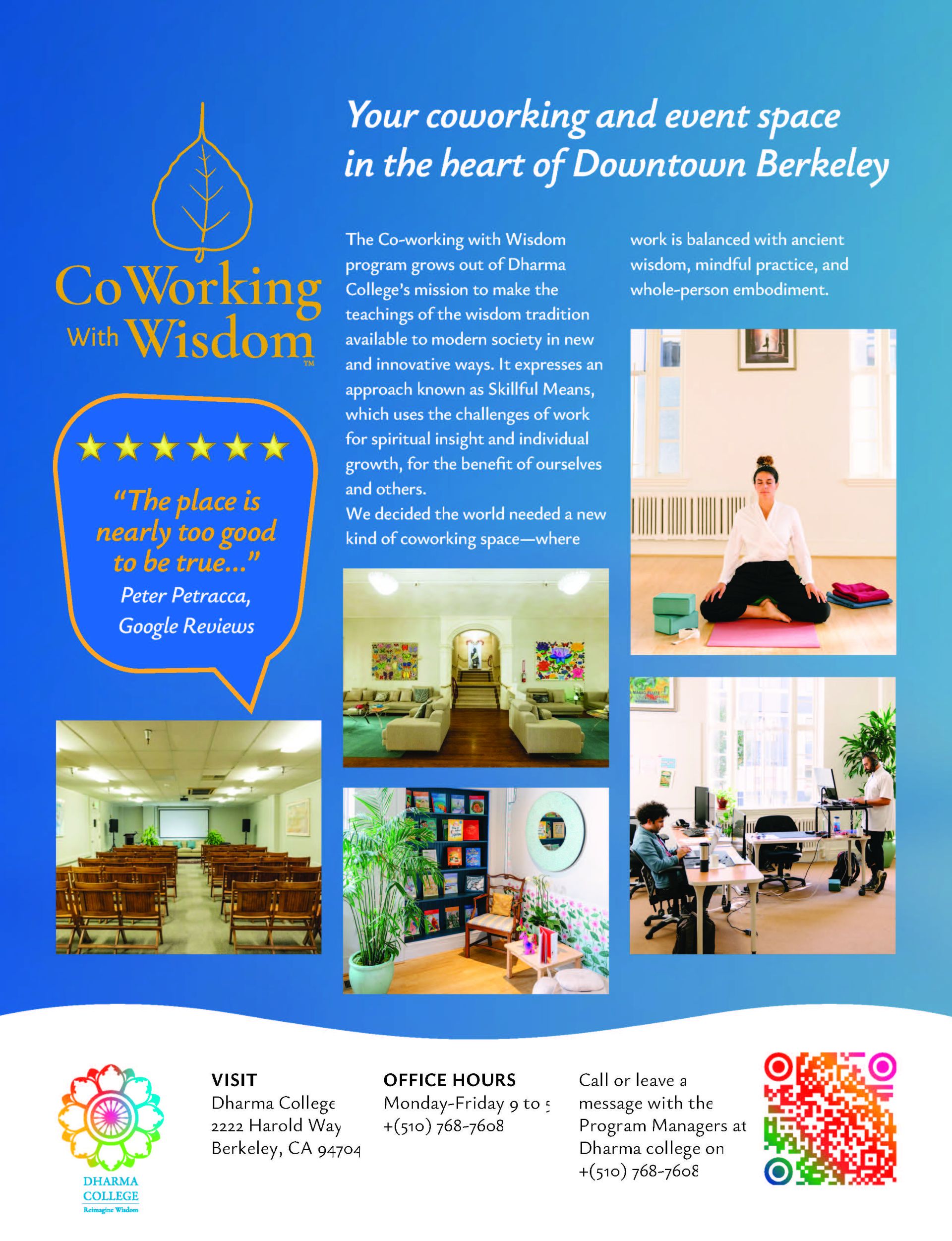
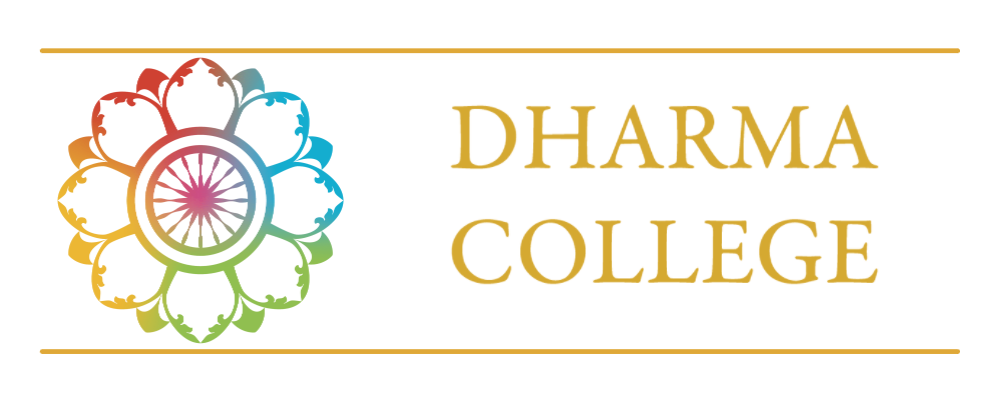
Copyright © 2024 Dharma College, All rights reserved.
Dharma College is an experiential academy for investigating the inner depths of mind and opening to an innate understanding of the treasures and freedom of Being.
This email was sent to <<Email Address>
Want to change how you receive these emails?
You can update your preferences or unsubscribe from this list.
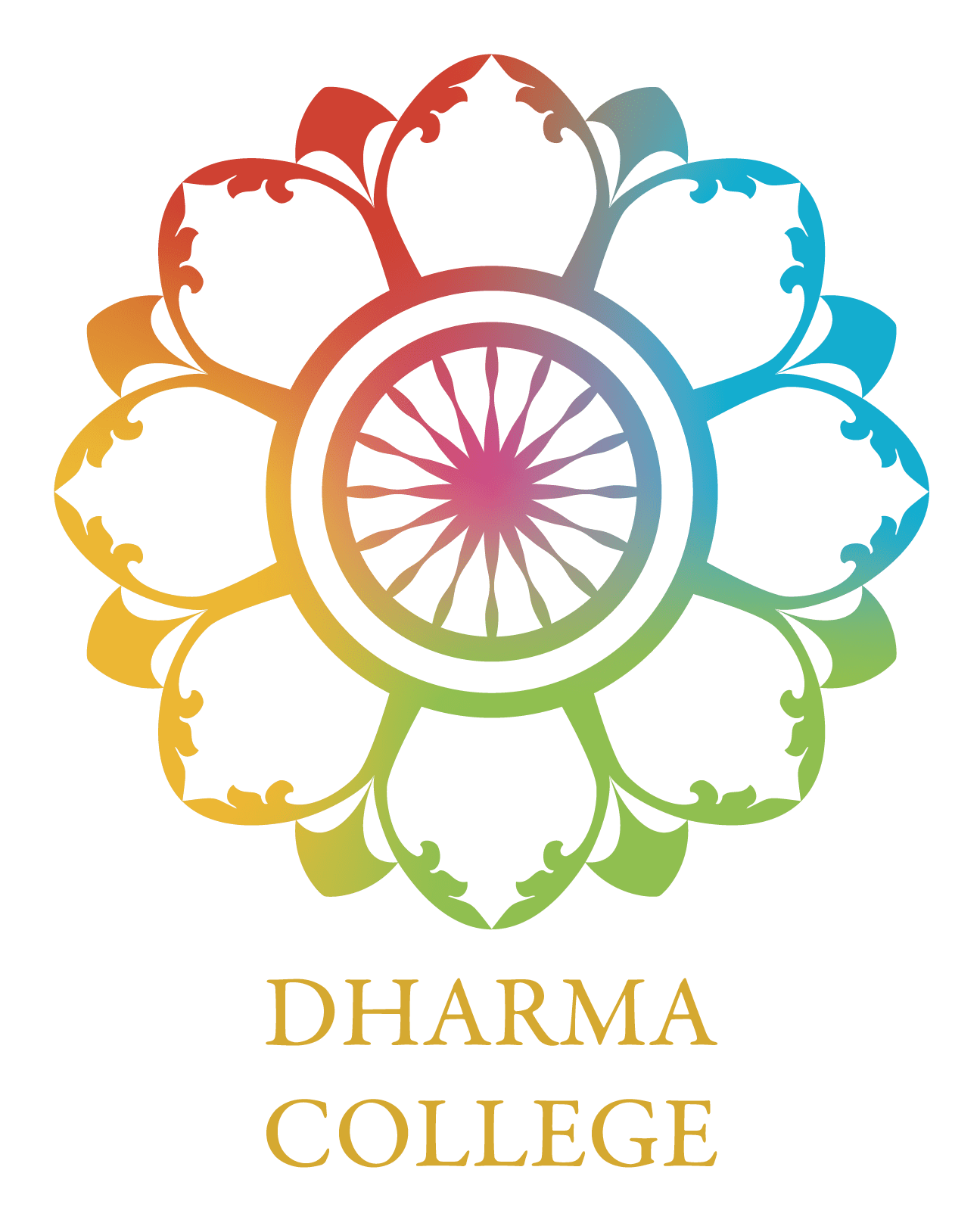
Contact
(510) 704-1105

